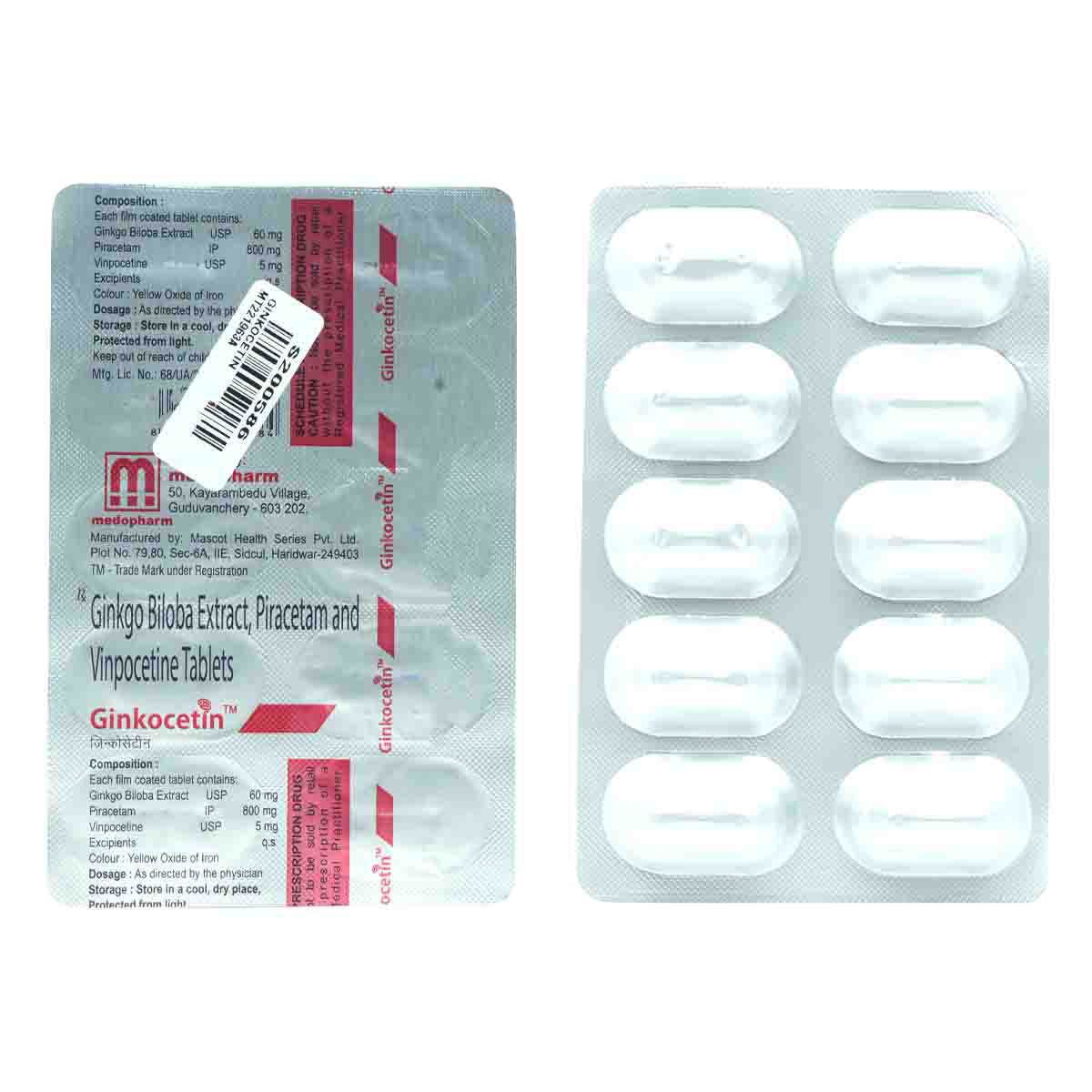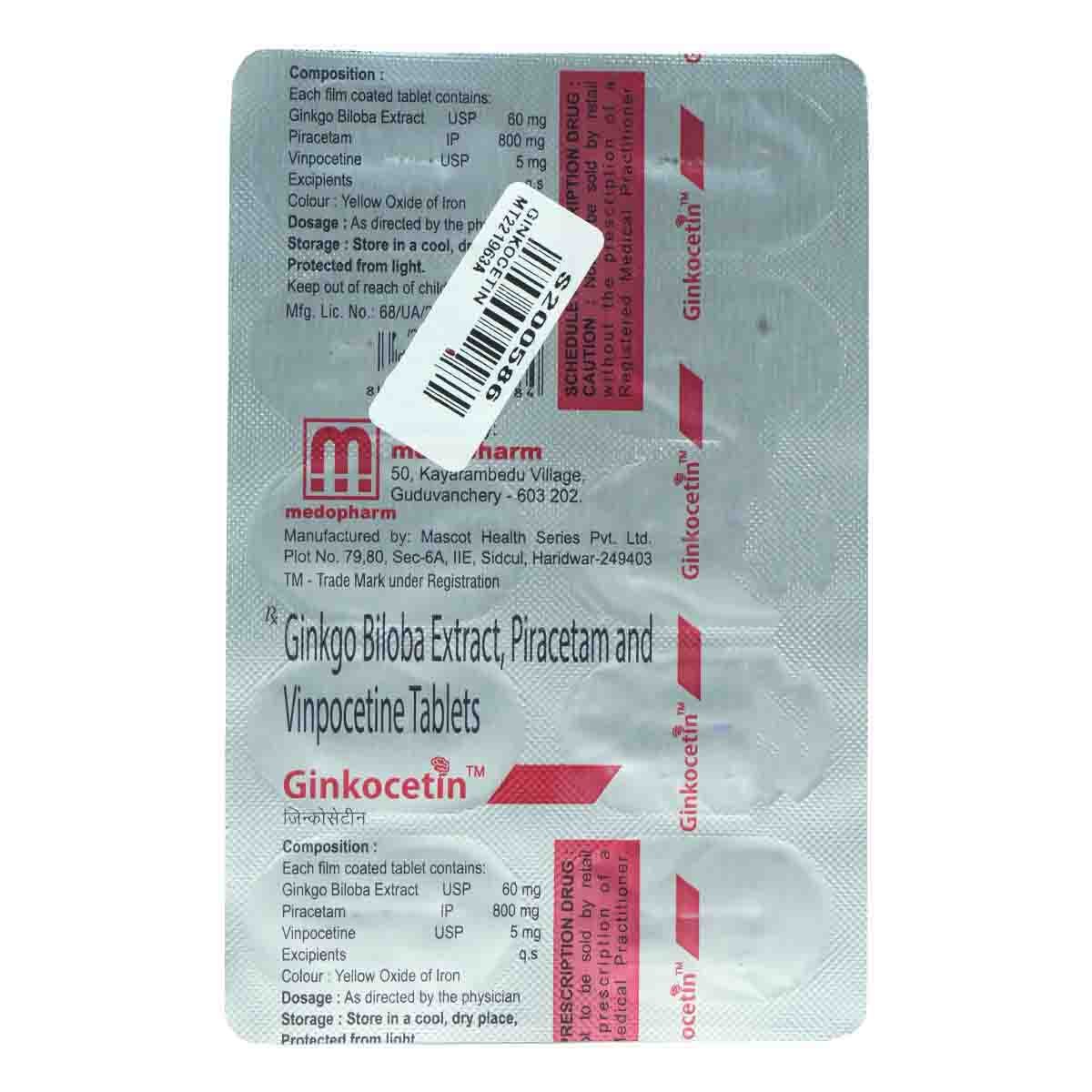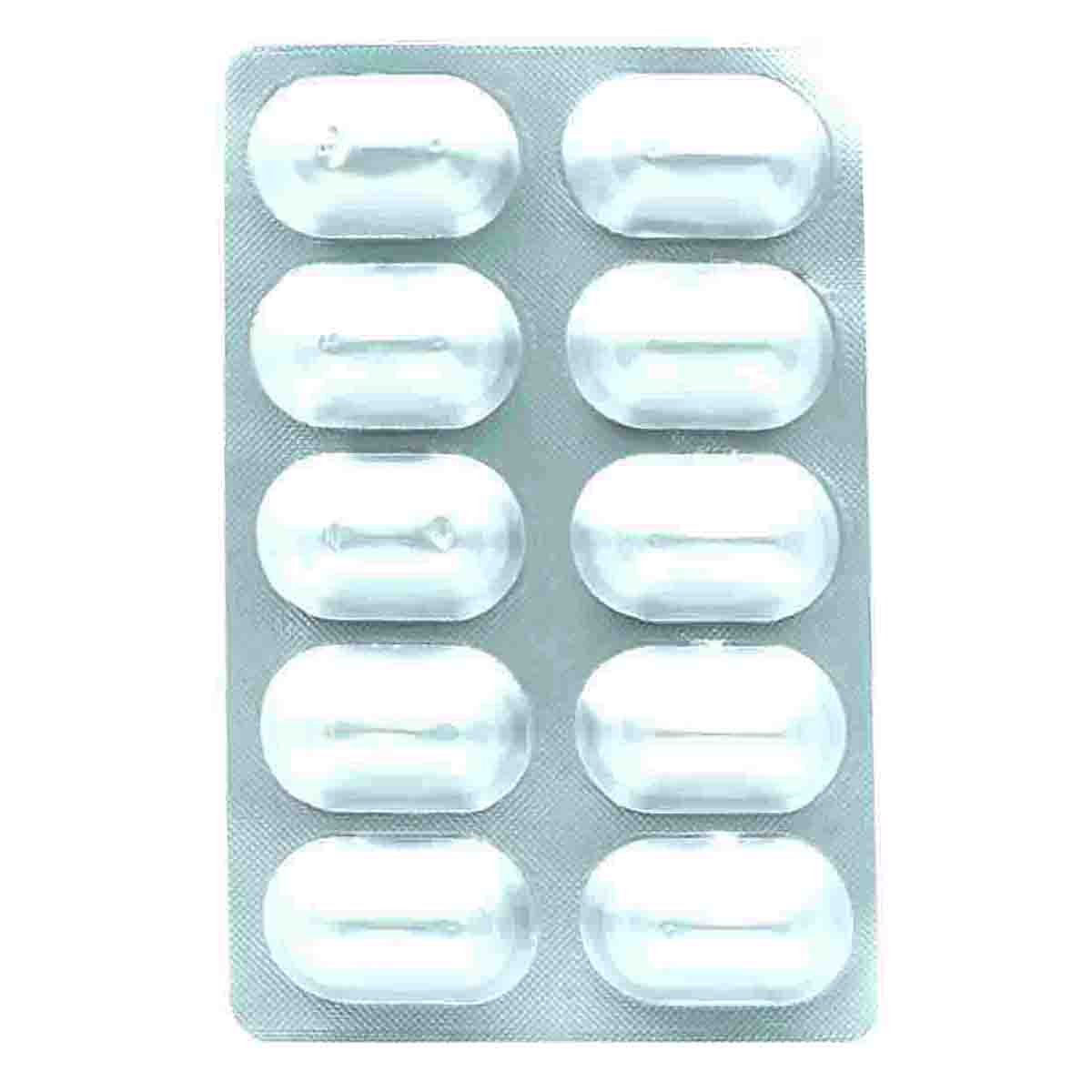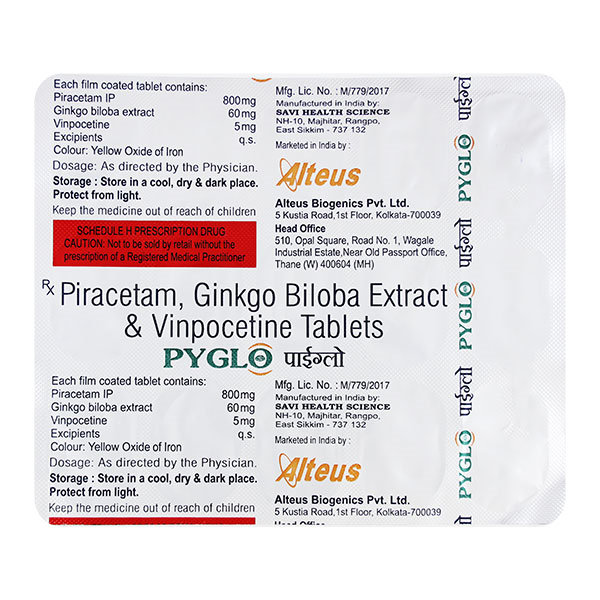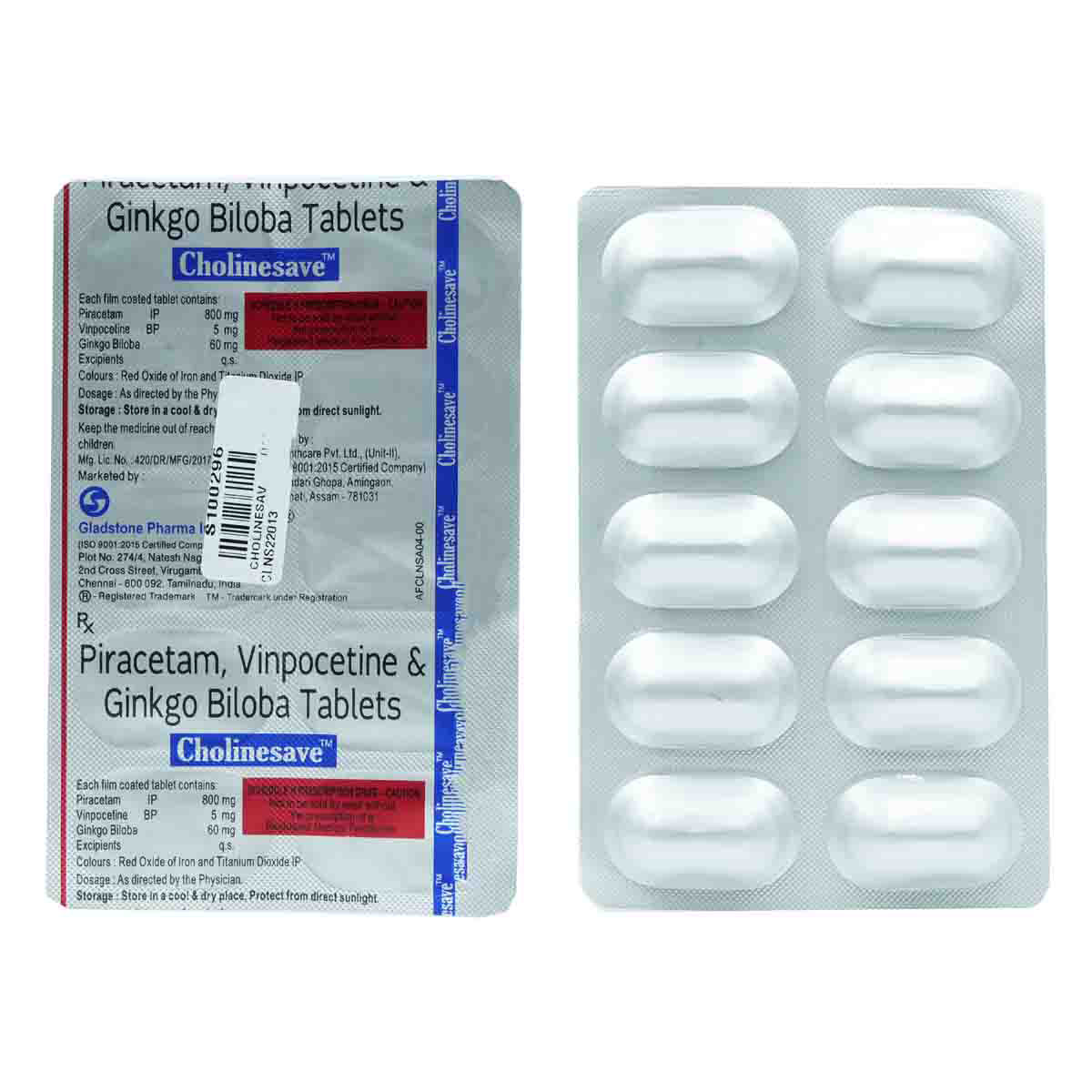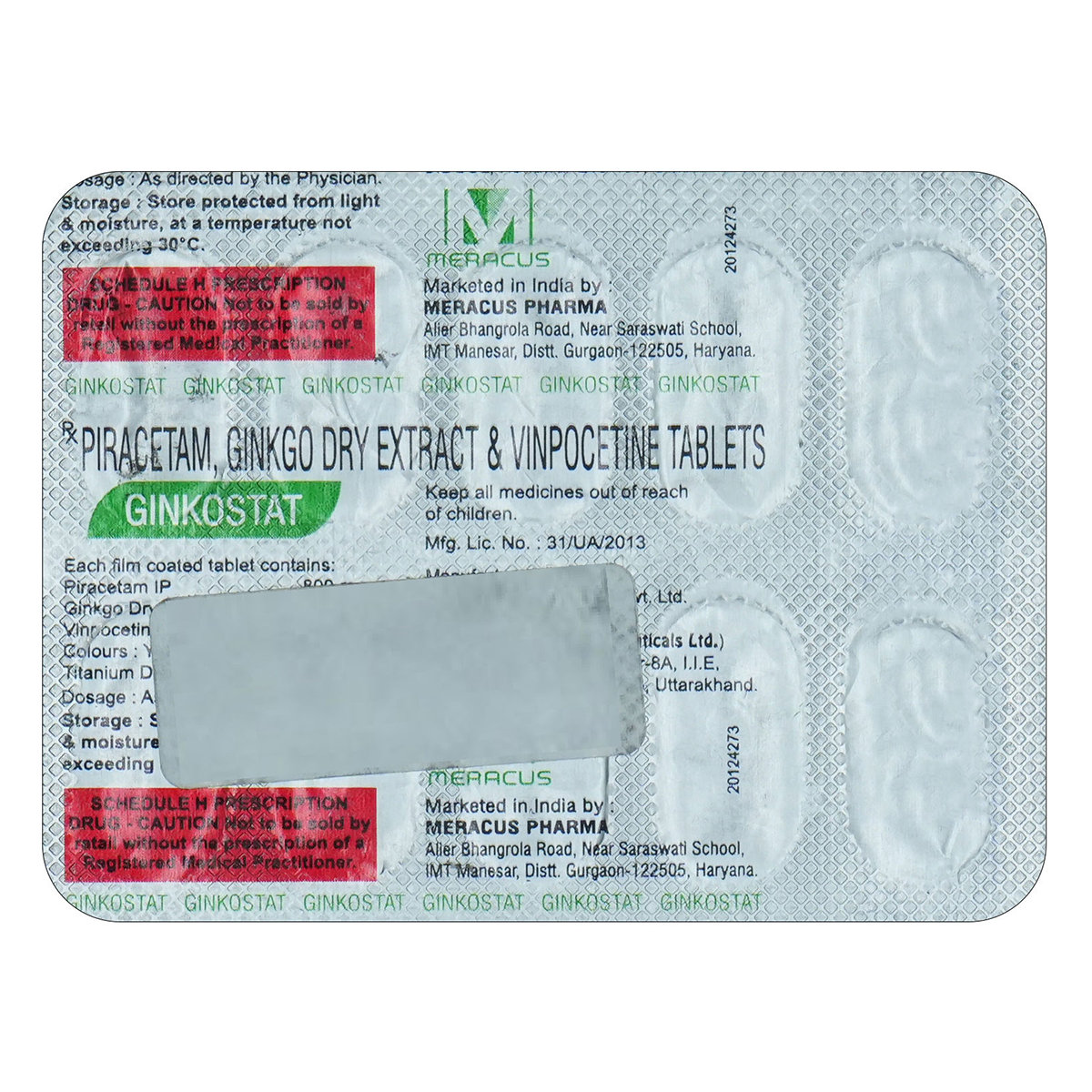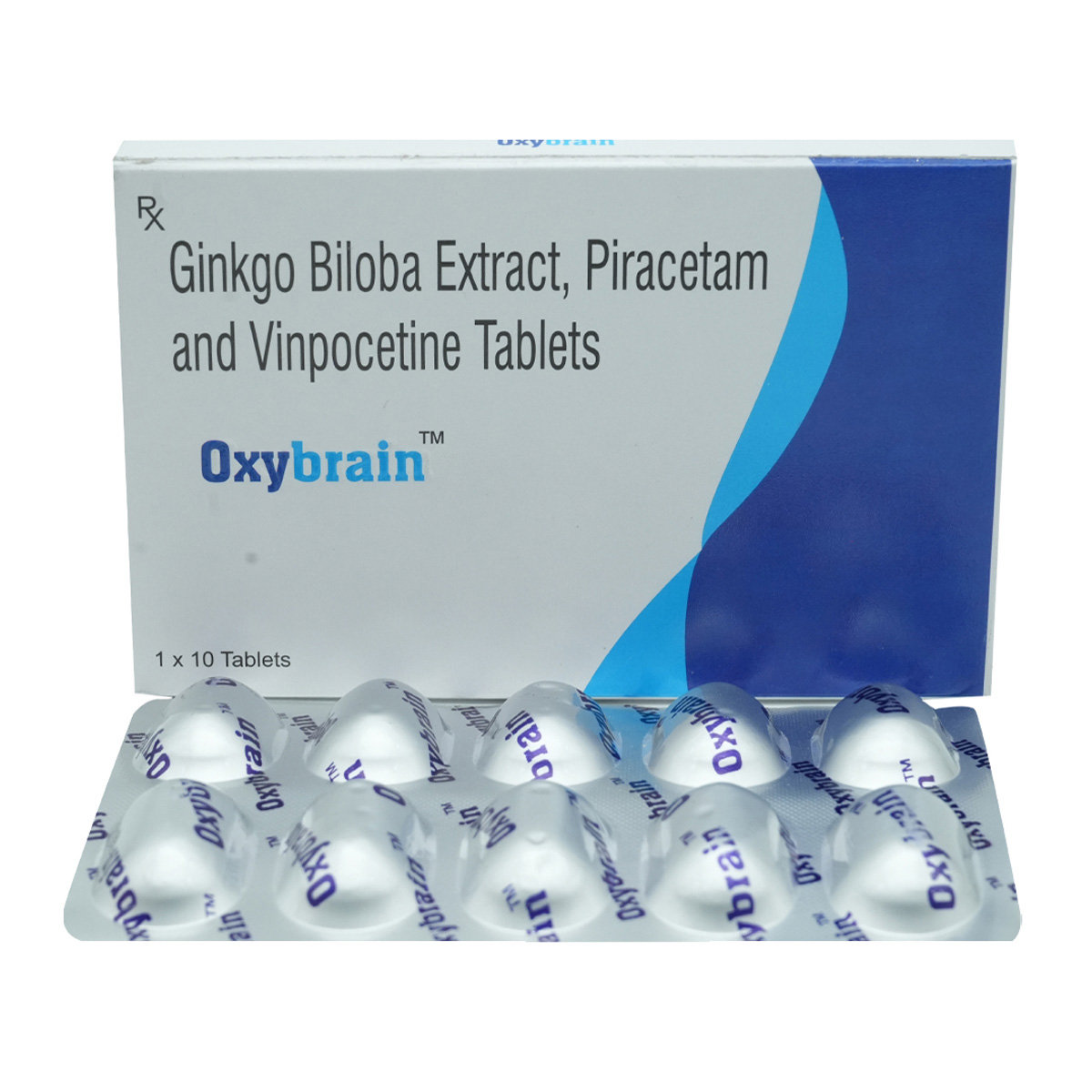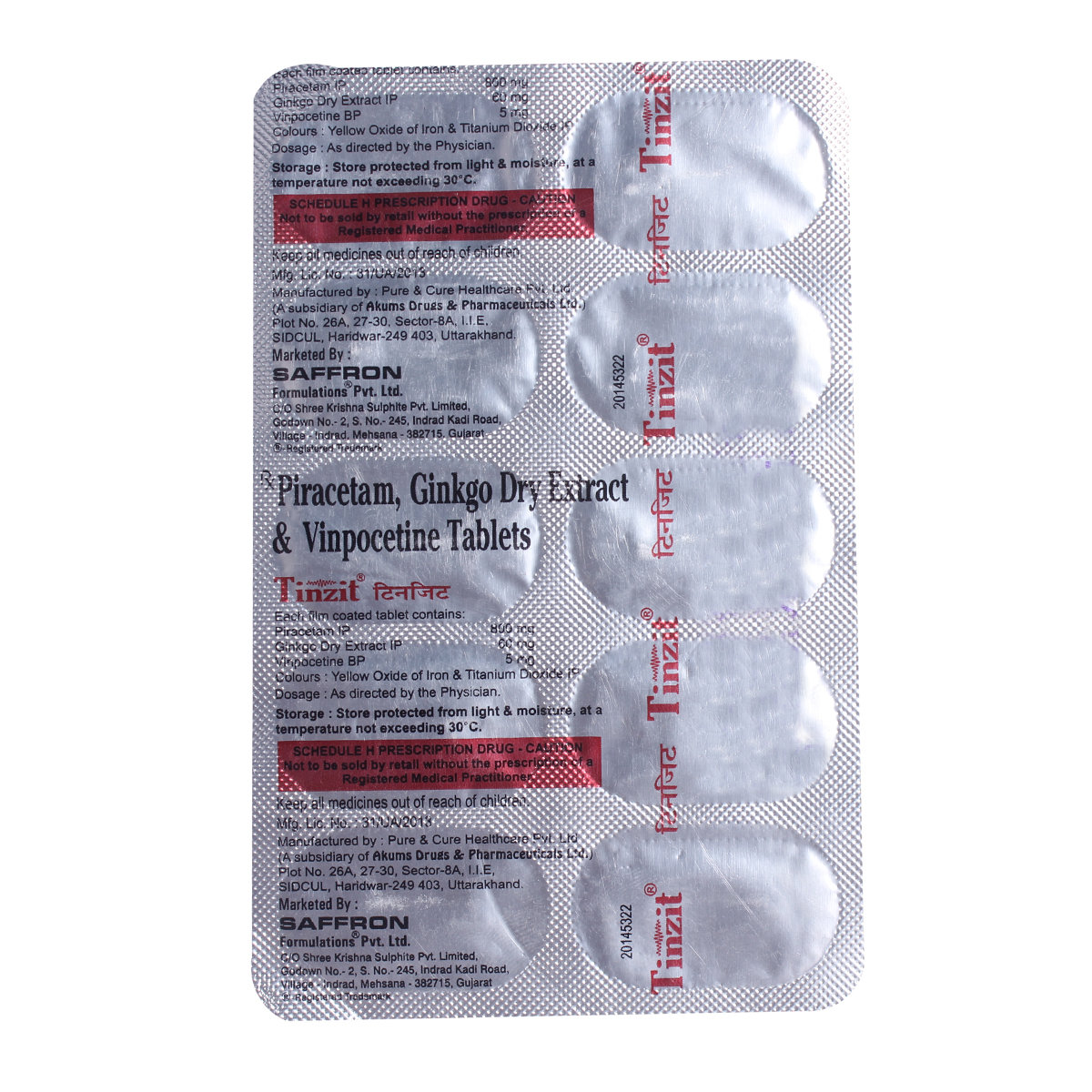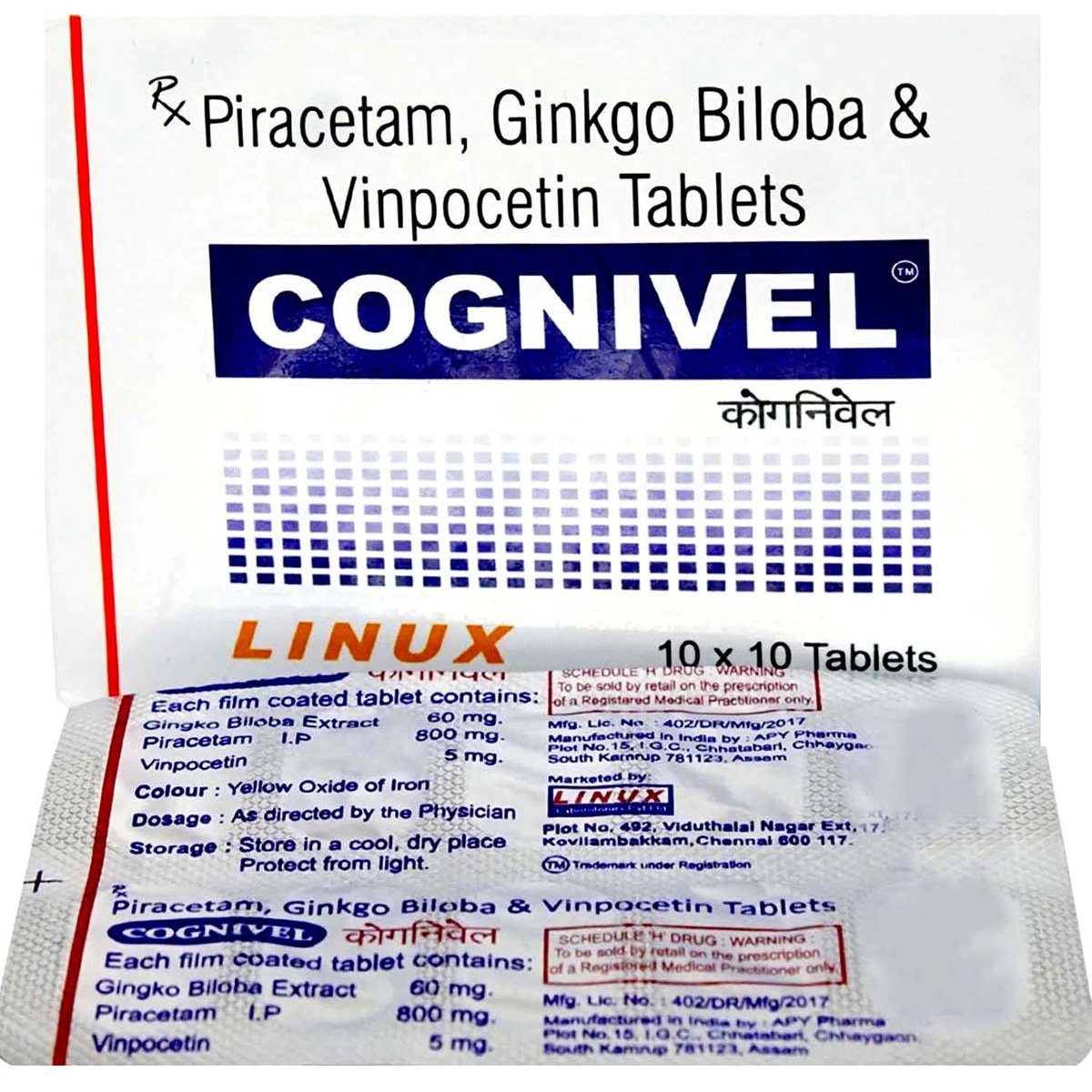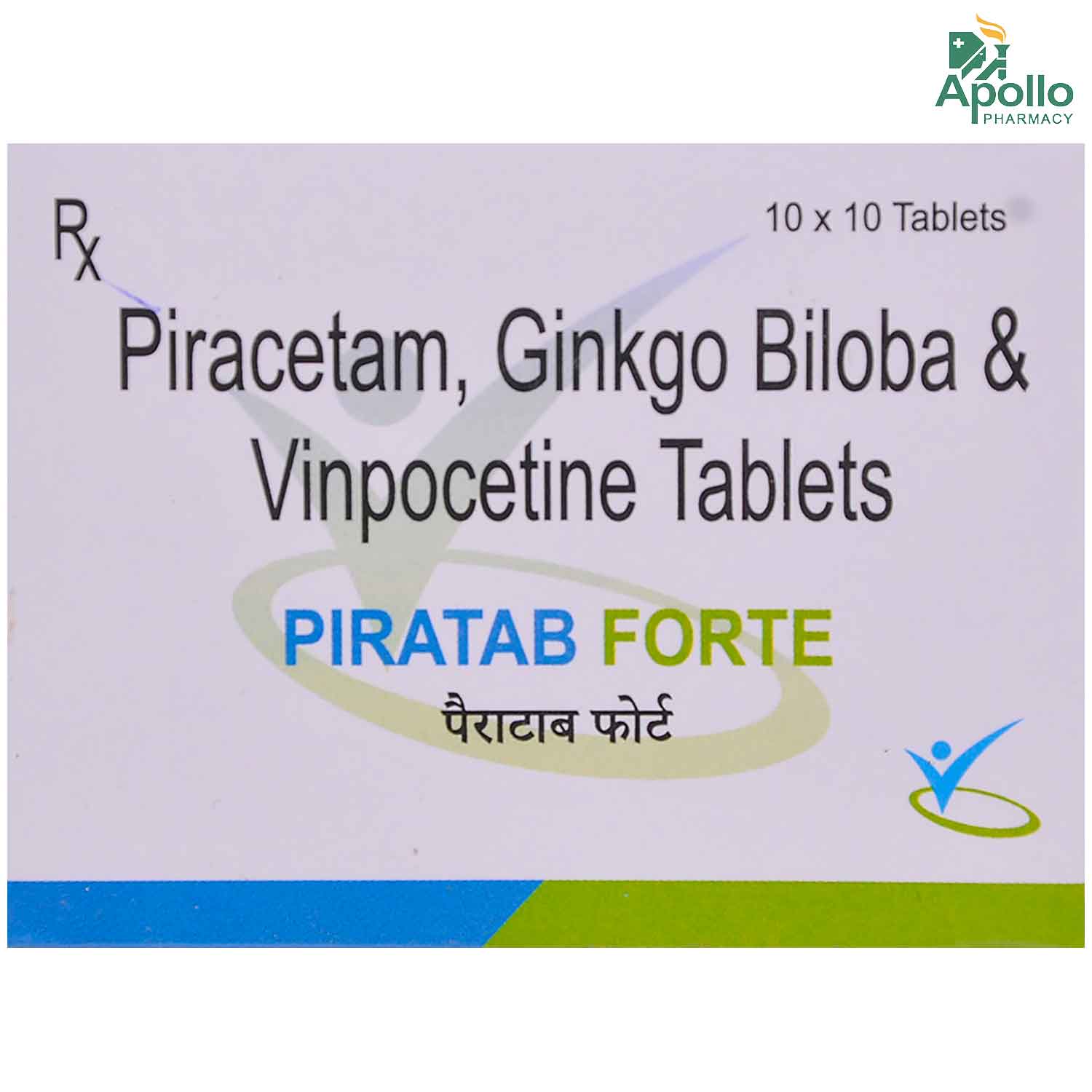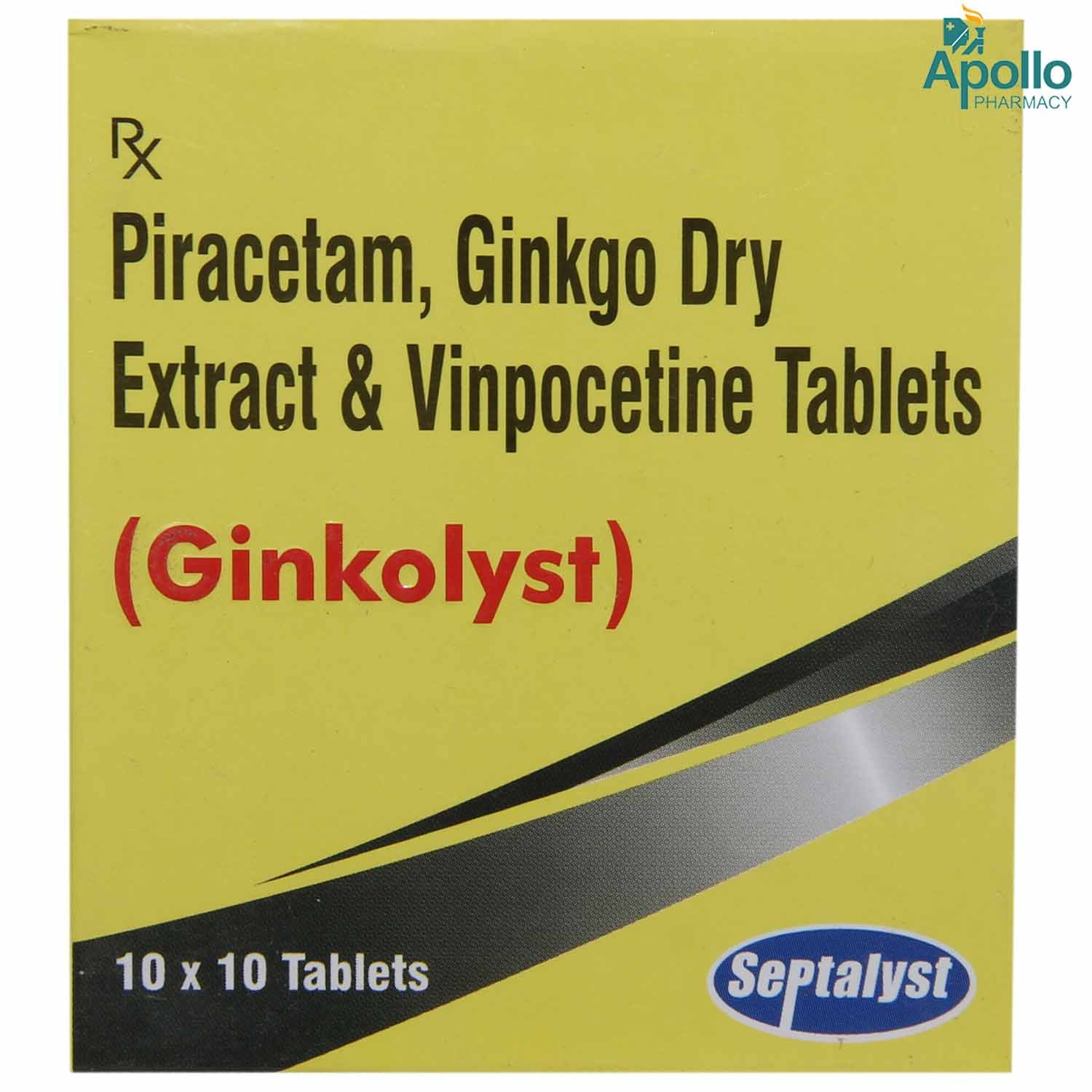Ginkocetin Tablet 10's
MRP ₹195
(Inclusive of all Taxes)
₹29.3 Cashback (15%)
Provide Delivery Location
Online payment accepted
 Prescription drug
Prescription drugWhats That
Composition :
Manufacturer/Marketer :
Consume Type :
Expires on or after :
Return Policy :
About Ginkocetin Tablet
Ginkocetin Tablet belongs to the group of medicines called 'nootropics', primarily used to boost brain performance or wakefulness, enhance mood, and improve cognitive ability in persons dealing with neurodegenerative diseases like dementia of Alzheimer’s disease and Parkinson's disease. Neurodegenerative diseases mean the death of neurons that can affect a person's speech, memory, intelligence, movement, and much more. Our brain is made of billions of neurons (cells in the brain) that communicate with each other to perform daily activities of the day. These neurons are closely connected, and even a small miscommunication in one area can affect brain activities resulting in neurodegenerative diseases. In Alzheimer's disease, the brain cells degenerate and die, which causes a gradual decline in behavioural and social skills and thinking ability (dementia), which affects a person's ability to function independently. Parkinson’s disease is a central nervous system disorder affecting movement and locomotion. It causes stiffness, shaking, difficulty walking, coordination, and balance.
Ginkocetin Tablet contains Ginkgo biloba, Piracetam, and Vinpocetine. Ginkgo biloba improves blood flow to the brain and acts as an antioxidant (natural substituent that slows down cell damage). Piracetam falls in the category of drugs called acetylcholinesterase inhibitors. This drug increases the levels of a substance (acetylcholine) in the brain, which is involved in improving memory functioning by slowing down the breakdown of acetylcholine (a substance that allows nerves to communicate and is important for normal brain functioning). Vinpocetine works like a neuroprotective agent that minimizes damage to the brain. It also prevents the risk of blood clotting in the brain, which makes brain cells (neurons) die. All three drugs, in combination, improve a person's mood, memory, and thinking ability.
Take Ginkocetin Tablet as prescribed by your doctor. You should take Ginkocetin Tablet as long as your doctor has prescribed it after checking your medical condition. The most common side effects of Ginkocetin Tablet include flushing (sense of warmth in ears, neck, face, and trunk), weight gain, upset stomach, rash, nervousness, and abnormality of voluntary movements. This happens because the body is adjusting to the new medicine. If a person notices severe side effects of medicine or if side effects do not go within a couple of days, then they need to consult with the doctor immediately.
Do not take Ginkocetin Tablet if you are allergic to any of its components. If you have a heart rhythm disorder, a stomach ulcer, urination problems, asthma or other breathing disorder, seizure, or liver or kidney disease, inform your doctor before taking this medicine. Ginkocetin Tablet is not recommended for use in pregnancy or breastfeeding. This medicine should be used with caution in elderly patients.
Uses of Ginkocetin Tablet
Directions for Use
Key Benefits
Ginkocetin Tablet contains Ginkgo biloba, Piracetam, and Vinpocetine. Ginkgo biloba improves blood flow to the brain and acts as an antioxidant (natural substituent that slows down the damage to cells). Piracetam falls in the category of drugs called acetylcholinesterase inhibitors. This drug increases the levels of a substance (acetylcholine) in the brain, which is involved in improving memory functioning by slowing down the breakdown of acetylcholine (a substance that allows nerves to communicate and is important for normal brain functioning). Vinpocetine works like a neuroprotective agent that minimizes damage to the brain. It also prevents the risk of blood clotting in the brain, which makes brain cells (neurons) die. All three drugs, in combination, improve a person's mood, memory, and thinking ability.
Storage
Drug Warnings
The use of Ginkocetin Tablet is not allowed in patients dealing with severe renal impairment, cerebral haemorrhage, and Huntington's Chorea. Additnitionaly, persons who are allergic to any of the components present in Ginkocetin Tablet are not allowed to take Ginkocetin Tablet . A person with a weak immune system or taking immunosuppressive medicine is not allowed to take Ginkocetin Tablet as it may cause serious side effects. Tell your doctor about your medical condition and the medicines you are taking. Alzheimer’s disease may affect the ability to drive, so do not perform any activity that needs mental alert unless your doctor tells you it is safe. frequent use of Ginkocetin Tablet may cause Behavioral sensitization, a process where a person does repeated behaviour, so talk to your doctor in such a case.
Drug-Drug Interactions
Drug-Drug Interactions
Login/Sign Up
Drug-Food Interactions
Drug-Food Interactions
Login/Sign Up
Diet & Lifestyle Advise
- A person dealing with Alzheimer's disease needs to take proper nutrition to make their body strong and healthy. For a patient dealing with dementia, poor nutrition can affect behavioural symptoms and may cause weight loss.
- Consume more whole grains, low-fat dairy products, vegetables, fruits, and lean protein foods, and reduce high saturated fat, refined sugars, and cholesterol from your diet.
- Patients dealing with dementia should do meditation activities that help calm down their minds and make medicine work more efficiently.
- Do physical exercises that are safe for Alzheimer's/ dementia patients. Avoid intake of high-protein foods like soy protein, fish, eggs, chicken, beef, and pork. Eat more whole-grain foods such as whole-wheat bread, oatmeal, brown rice, or pasta.
- Eat more fibre-rich foods to ease constipation.
- Drink plenty of water to avoid headaches due to dehydration.
- Avoid the consumption of alcohol as it may increase drowsiness.
Side Effects of Ginkocetin Tablet
- Drowsiness
- Diarrhea
- Insomnia
- Weight gain
- Nervousness
Habit Forming
Therapeutic Class
All Substitutes & Brand Comparisons
RX
Pyglo Tablet 15's
Alteus Biogenics Pvt Ltd
₹339
(₹20.34 per unit)
15% COSTLIERRX
Rinbuz Tablet 10's
Wellwok Pharma
₹229.5
(₹20.66 per unit)
17% COSTLIERRX
Cholinesave Tablet 10's
Gladstone Pharma India Pvt Ltd
₹243.5
(₹21.92 per unit)
24% COSTLIER
Drug-Diseases Interactions
Drug-Diseases Interactions
Login/Sign Up
FAQs
Drug-Drug Interactions Checker List
- FLUOXETINE
- TOLTERODINE
- DIPHENHYDRAMINE
- APIXABAN
- ASPIRIN
- IBUPROFEN
- NAPROXEN
Special Advise
- Certain Cognitive and neuropsychological tests are done to diagnose dementia.
- If you have unusual urges like gambling, spending money, overeating or increased sexual urges, please inform your doctor before taking Ginkocetin Tablet .
Disease/Condition Glossary
Neurodegenerative diseases: It is caused by the death of neurons that can affect a person's speech, memory, intelligence, movement, and much more. Our brain is made of billions of neurons (cells in the brain) that communicate with each other to perform daily activities of the day. These neurons are closely connected, and even a small miscommunication in one area can affect brain activities resulting in neurodegenerative diseases like Alzheimer's disease and
Alzheimer's disease: This is a chronic progressive disease in which the brain cells degenerate and die and is the most common cause of dementia. Dementia affects a person's ability to function independently and affects a person's thinking, judgment, behaviour, and memory. Persons dealing with this disease face symptoms like memory loss that affects daily activities, difficulty in doing familiar tasks and problem-solving, trouble in speech or writing, decreased judgment /personal hygiene, and personality changes.
Parkinson’s disease: It is a disorder of the central nervous system that affects movement due to damage of nerve cells in the brain which reduces dopamine levels and leads to symptoms such as stiffness, tremor in one hand, shaking, difficulty walking, coordination, and balance. This condition can last for many years or life-long. Treatment with medicines and physiotherapy may help control the symptoms and provide a quality life for as long as possible.

Have a query?
Alcohol
Safe if prescribed
Avoid alcohol consumption while taking Ginkocetin Tablet . Alcohol intake, along with Ginkocetin Tablet , can worsen the symptoms of dementia.
Pregnancy
Consult your doctor
If you are pregnant, inform your doctor before taking Ginkocetin Tablet . Your doctor prescribes this medicine only if the benefits outweigh the risks.
Breast Feeding
Consult your doctor
It is not known if Ginkocetin Tablet passes into breast milk or not. If you are breastfeeding, please consult your doctor before taking Ginkocetin Tablet .
Driving
Safe if prescribed
Ginkocetin Tablet can cause an undesirable reaction in the body that can impair a person's thinking ability. One should avoid driving and do activities that require mental alertness.
Liver
Consult your doctor
If you have liver problems, inform your doctor before taking Ginkocetin Tablet . Your doctor may adjust the dose of this medicine or prescribe a suitable alternative based on your condition.
Kidney
Consult your doctor
Ginkocetin Tablet can not be used in patients with severe renal disease. If you have kidney problems, inform your doctor before taking Ginkocetin Tablet . Your doctor may adjust the dose of this medicine or prescribe a suitable alternative based on your condition.
Children
Safe if prescribed
Ginkocetin Tablet is not recommended for use in children as safety and efficiency were not been established.

